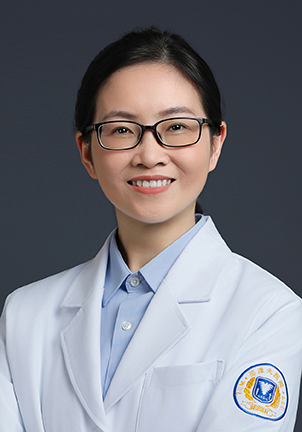Translational Medicine and Clinical Research
Overview
The Department of Translational Medicine and Clinical Research of SRRSH, founded in 2021, is a clinical research center that conducts clinical trials of innovative drugs and medical instruments, and observes the clinical application of new biomedical technologies. It focuses on the fusion of production, education, research, and application and adheres to the concept of "precision and minimally invasiveness" with an orientation of future medicine. At present, the department has 1 doctoral supervisor, 1 master's supervisor, 2 senior title holders, and 6 PhD holders. It is equipped with 29 ward beds, and a complete set of 450 square meters of autologous cell preparation laboratories in accordance with GMP (Good Manufacturing Practice) standards.
Since its establishment, the department has conducted 24 clinical trials (GCP) involving drugs and medical instruments, and 26 investigator-initiated trials (IIT). Meanwhile, it has undertaken projects funded by the National Natural Science Foundation of China, key research and development programs of Zhejiang Province, and major projects supported by the Natural Science Foundation of Zhejiang Province. The department is committed to integrating basic medical research with practical clinical issues, shortening the waiting period for the translation of research outcomes to directly benefit patients with tangible results. By addressing practical clinical problems through a multidisciplinary approach, the department builds bridges and paves the way for providing more insights and methods for basic research and solving complex medical cases.
The Department of Translational Medicine and Clinical Research focuses on in-depth research that integrates medicine, engineering, and information technology. Its primary directions include the development and clinical application of novel medical instruments, AI-driven precision diagnosis and treatment, and cell-based biotherapy. By combining minimally invasive surgery, chemotherapy, precision-targeted therapy, immunotherapy, and innovative cell-based treatments throughout the entire course of patient care, the department aims to deliver personalized, intelligent, minimally invasive, and precise medical solutions. It actively explores new treatment methods for malignant tumors and other diseases, striving to offer the best diagnostic and therapeutic experience and outcomes to patients.
Technical advantages
The Department of Translational Medicine and Clinical Research focuses on in-depth interdisciplinary research integrating medicine and engineering, with primary directions including precision diagnosis and treatment of digestive system diseases such as hepatobiliary and pancreatic disorders, and cell-based biotherapy like CAR-T. This includes basic-to-clinical translation, clinical trials of new drugs, and medical instruments. The department is equipped with advanced therapeutic technologies and extensive clinical trial experience.
Tumor Treating Fields (TTF): Tumor Treating Fields is a therapy delivered through a portable, non-invasive medical device. Its mechanism involves applying low-intensity, mid-frequency alternating electric fields to microtubule proteins in proliferating cancer cells, disrupting tumor cell mitosis, inducing apoptosis in affected cancer cells, and inhibiting tumor growth. Compared to traditional treatments such as surgery, radiotherapy, and chemotherapy, TTF has fewer side effects due to its localized and anti-mitotic nature. Its efficacy has been demonstrated in clinical studies.
CAR-T Therapy: Chimeric Antigen Receptor T-cell (CAR-T) therapy, a form of immunotherapy, is mainly used for patients with malignant hematological diseases and tumors. CAR-T therapy involves collecting and isolating T cells from the patient’s blood, genetically modifying them to enhance their targeting and killing ability against cancer cells. These T cells are then cultured and expanded in vitro before being reinfused into the patient’s body, where they continue to proliferate, ultimately identifying and destroying cancer cells.
Bioartificial liver with transdifferentiated hepatocytes: hiHep cells are a novel type of human transdifferentiated liver cells that possess normal liver functions and can be expanded ex vivo. The department has successfully developed an in vitro bioartificial liver support system based on hiHep cells. Large animal experiments have demonstrated that this system can prolong the survival of experimental pigs, reduce blood ammonia levels, and lower inflammation, playing a significant role in promoting liver regeneration. Further clinical research has shown that for patients with liver insufficiency following hepatectomy, hiHep bioartificial liver treatment has significant benefits in promoting liver regeneration.
Personalized Tumor Neoantigen mRNA Therapy: This technology is mainly used for treating patients with malignant tumors, particularly those with a high risk of recurrence after radical surgery, to prevent relapse. The approach involves collecting tumor tissue and peripheral blood from patients, performing high-throughput sequencing to select appropriate neoantigens, and loading these neoantigens into mRNA liposomes to create a personalized tumor neoantigen mRNA injection. This formulation can precisely activate the proliferation of the patient’s specific T cells, thereby killing the tumor cells.
TIL Cell Therapy: Tumor Infiltrating Lymphocytes (TIL) therapy is an innovative cancer immunotherapy mainly targeting solid tumors, especially advanced melanoma. TIL cells are isolated from the patient's tumor tissue, which are lymphocytes that have infiltrated into the tumor tissue and have the ability to recognize and attack cancer cells. These TIL cells are expanded and cultured ex vivo and then re-infused into the patient's body to attack cancer cells.
TKC Cell Therapy: A mixture of immune cells containing both NK cells and γδT cells obtained by cultivating and expanding in the same culture system using the unique TKC technology for the treatment of advanced solid tumors. The core of this treatment method lies in the combination of these two cell types, both of which can recognize and attack cancer cells through different mechanisms.
Research achievements
Since its establishment, the department has undertaken one project funded by the National Natural Science Foundation, one provincial key research and development project, one project supported by the Natural Science Foundation of Zhejiang Province, and one project from the Provincial Science and Technology Department. Since 2021, the department has published more than 20 papers in domestic and international academic journals.
















